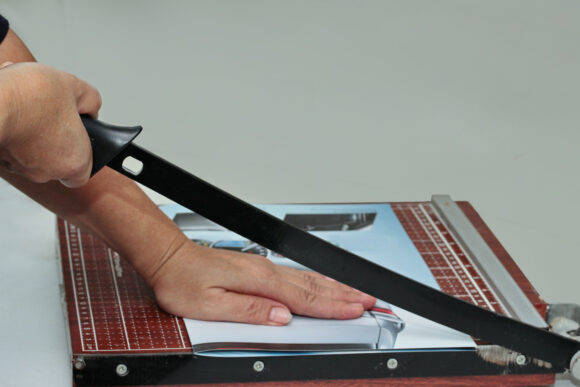Clearly, Admiral Insurance Co. did not want to assume any risk in the New York City area.
The insurance policy Admiral issued to Richfield Window Coverings excluded coverage “in any way connected with” operations or activities in the nine counties within and surrounding the New York City metropolitan area. Richfield purchased the policy despite that exclusion, even though it sells window coverings to retailers in New York and around the country.
But when an employee of a Home Depot store on Long Island filed a lawsuit after cutting off parts of three fingers while using one of Ritchfield’s cutting machines, the company asked Richfield to defend it.
The New Jersey Supreme Court ruled Wednesday that Admiral has no duty to defend its policyholder, reversing a decision by the Appellate Division.
“The fact that Richfield provided the machine to Home Depot is enough to trigger the exclusion because the phrase ‘in any way connected with’ merely requires that the two are linked in some way, even if they are only tangentially connected,” the unanimous opinion says.
Richfield, based in Santa Fe Springs, California, sells blinds, shades and shutters to national retailers, including Home Depot, Walmart and Bed Bath & Beyond under the brand name Nien Made USA. The company provides retailers who sell its products with cutting devices and trains store employees how to use them. Richfield field representatives typically visit the retail locations periodically to maintain and repair the devices as needed.
On Aug. 12, 2017, Home Depot employee Colleen Lorito severed parts of three fingers on her left hand while using one of the cutting devices at a store in Nassau County, New York. She claimed the machine did not have a safety guard. Lorito and her husband filed a lawsuit against Richfield’s parent company, Nien Made.
Admiral denied Richfield’s request to defend the company, pointing to the language in the policy that excludes Bronx, Kings, Nassau, New York, Queens, Richmond, Rockland, Suffolk and Westchester counties from coverage for liability caused by any “operations or activities performed by or on behalf of any insureds.”
The insurer and Richfield tried to resolve their differences through arbitration. The arbitrator found in favor of Admiral.
Richfield filed a lawsuit, but the Morris County Law Division granted summary judgment in favor of the insurer. The Law Division judge pointed to the policy language that excludes injury or damage “arising out of, related to, caused by, contributed to by, or in any way connected with” activities or operations in Nassau and the other eight New York counties.
The New Jersey Appellate Division, however, ruled that the Law Division judge erred. The appellate court found that Richfield’s “limited activities and operations” in Nassau County had no causal relationship to the lawsuit. The company’s president, Harjit Singh, had testified that Richfield doesn’t do business in New York, it sells product to companies that operate there.

The Supreme Court said in has never had an opportunity to interpret the meaning of policy language that excludes activities or operations “in anyway connected to” certain counties, but in previous decisions it has applied similar terms broadly. No causal relationship is required, the opinion says.
Richfield’s attorney, Ryan Milun in Cranford, New Jersey, said insurance policies that exclude the New York area from coverage are common because the region is notorious for runaway verdicts. But he said he thinks the Supreme Court was wrong to apply the policy exclusion to a wholesaler that does not do any business in the region directly.
Milun said Richfield in no way caused Lorito’s injury. Although he’s not involved with the injury lawsuit, he said he knows that the cutting devices that Richfield supplies to retailers have safety guards. The employee would have had to have moved it in order to cut her fingers, he said.
So why did Richfield purchase a policy that excluded nine New York counties from coverage when it sells product in those counties?
“I’m not sure they were aware of the exclusion as it was buried within the policy, but either way they certainly didn’t think Home Depot’s use of the machine would count as Richfield operations,” Milun said.
Attorney Justin N. Kinney, who represented Admiral, refused to comment on the decision.
Was this article valuable?
Here are more articles you may enjoy.


 FM Using AI to Elevate Claims to Deliver More Than Just Cost Savings
FM Using AI to Elevate Claims to Deliver More Than Just Cost Savings  US Will Test Infant Formula to See If Botulism Is Wider Risk
US Will Test Infant Formula to See If Botulism Is Wider Risk  Cape Cod Faces Highest Snow Risk as New Coastal Storm Forms
Cape Cod Faces Highest Snow Risk as New Coastal Storm Forms  Uber Jury Awards $8.5 Million Damages in Sexual Assault Case
Uber Jury Awards $8.5 Million Damages in Sexual Assault Case 